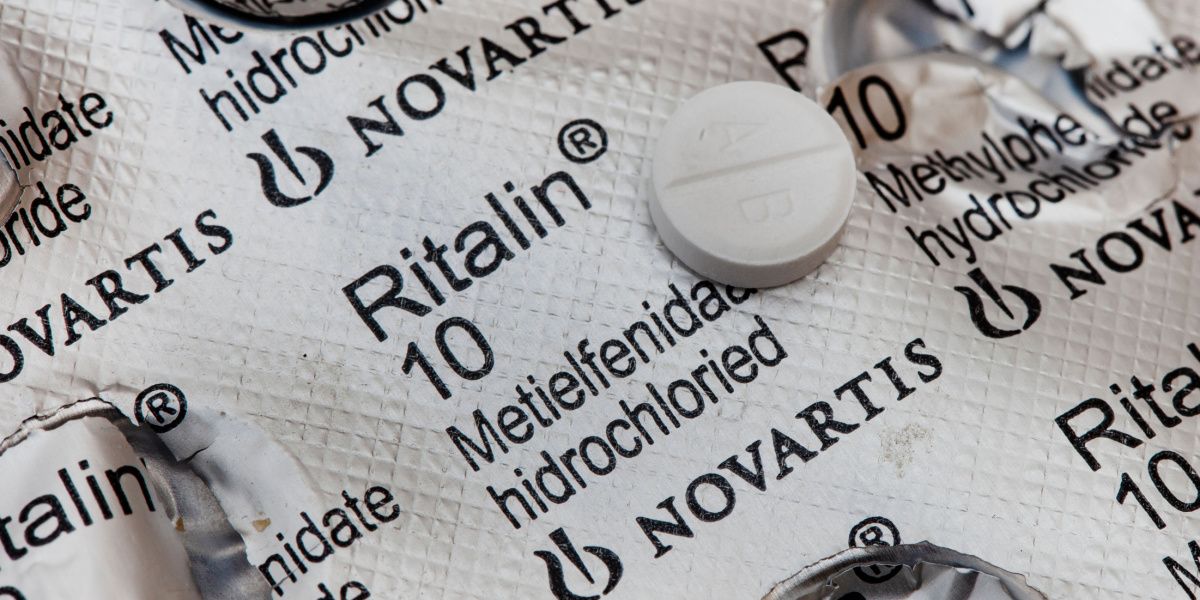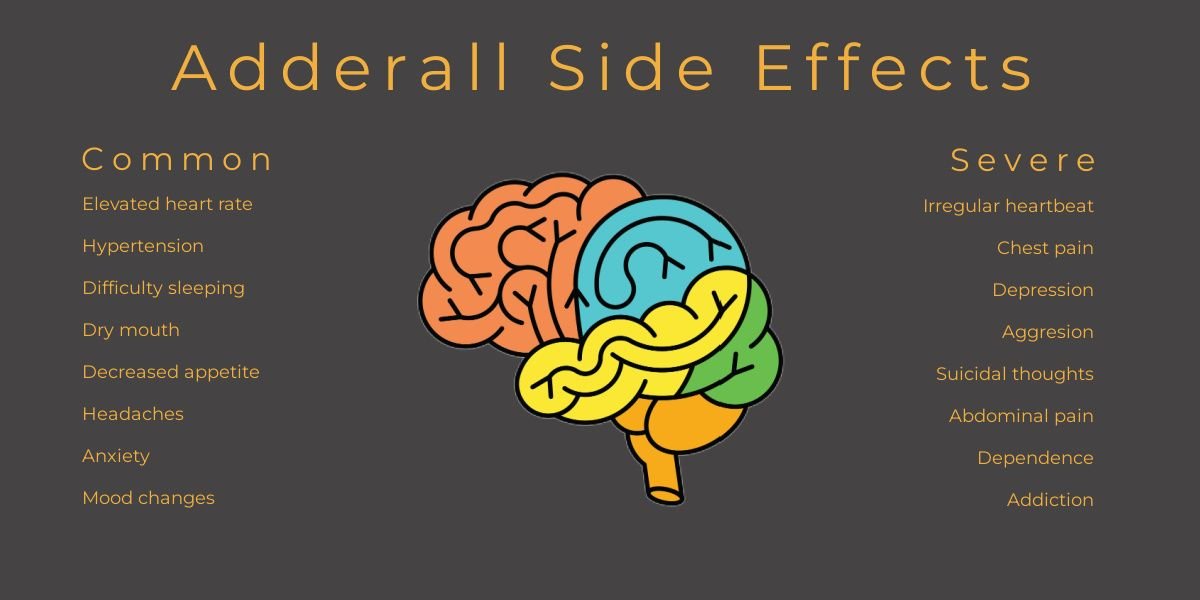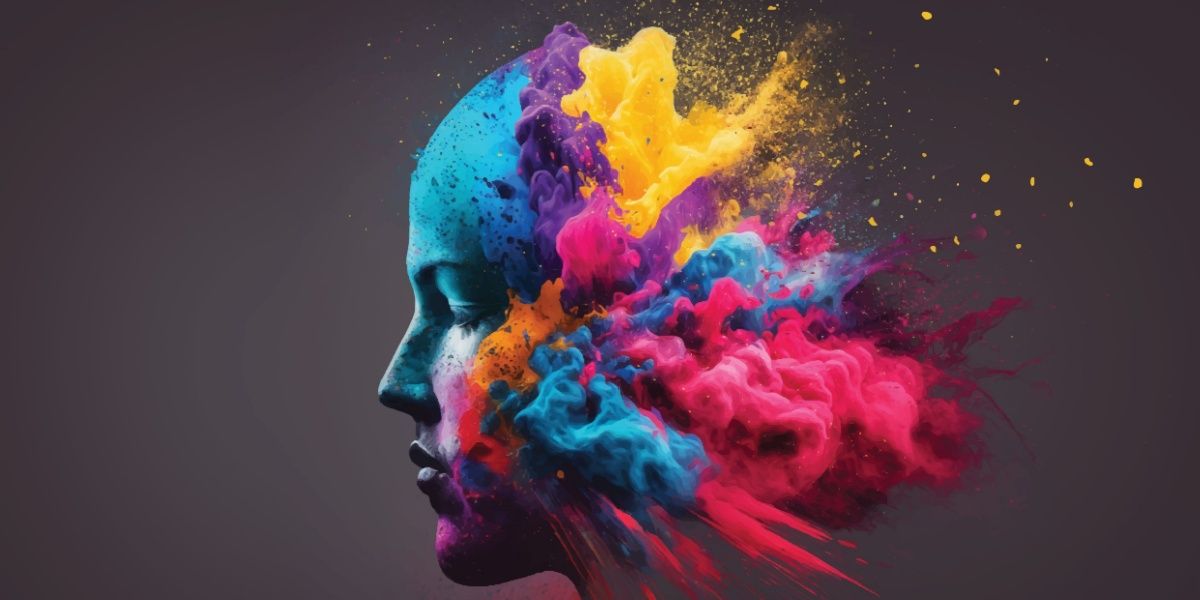Ritalin is the name of a medication used to treat ADHD that contains methylphenidate. Ritalin is a central nervous system stimulant and is available in various strengths and dosage forms. It is common for Ritalin to cause some side effects, particularly at the beginning of a new treatment, including nausea, agitation, insomnia, and reduced appetite. It may also cause severe side effects, particularly if it is misused or abused. [1]
.jpg?v=1722504159)
What is Ritalin?
Ritalin is a central nervous system (CNS) stimulant containing methylphenidate. It is regularly prescribed and is also often misused. Because of its abuse and addiction potential, Ritalin is a Schedule II controlled substance. [2]
What is Ritalin used for?
Ritalin is prescribed to treat attention-deficit/hyperactivity disorder (ADHD) and is also sometimes used to treat narcolepsy. [1]
Ritalin doses
It is available as an immediate-release (IR) tablet in 5mg, 10mg, and 20mg strengths, a sustained-release tablet in 20mg strength, and an extended-release (ER) capsule in 10mg, 20mg, 30mg, and 40mg strength. [1][3]
Short-acting Ritalin is taken in 2-3 doses per day while the long-acting medication is taken once daily. A typical dose of Ritalin is 20-30mg per day, which may be increased to 60mg per day. [1][3]
Why do people abuse Ritalin?
Ritalin is often abused for its stimulant and euphoric effects. It can increase energy and alertness, contributing to its abuse for enhancing academic or athletic performance. Ritalin can also cause reduced appetite so is sometimes misused for weight loss purposes. [2][4]
Methylphenidate impacts the levels and activity of dopamine and norepinephrine. Norepinephrine is a neurotransmitter involved in various functions including regulating energy levels and cognitive function. Dopamine is a neurotransmitter involved primarily in the reward center of the brain. [5]
Ritalin causes an increased release of dopamine when abused or taken beyond the prescribed amount, resulting in a feeling of euphoria or ‘high’. This contributes to the reinforcement of Ritalin use and the development of addiction and dependence. [6]
Prolonged use of Ritalin, whether as prescribed or illicit use, can result in the development of tolerance and dependence, which causes a decrease in the effects of the medication and the onset of withdrawal symptoms if use is stopped. This can contribute to abuse of the substance, in an attempt to achieve the desired effects and prevent withdrawal symptoms. [1]
Ritalin is a widely prescribed medication and is, therefore, easily available to individuals wishing to misuse it. Some people sell or share their prescriptions or attempt to obtain several prescriptions for misuse and diversion. Additionally, Ritalin is sometimes abused by being used in alternative manners, such as intranasal or intravenous administration. [4]
Common side effects of Ritalin
When starting a new medication, it is not unusual to experience side effects. Beginning Ritalin treatment, increasing the dosage, or misusing the medication may cause side effects. Typically, these will be alleviated within a couple of weeks. Common side effects of Ritalin include: [1][5][7]
- Anxiety
- Restlessness
- Agitation
- Low mood
- Irritability
- Insomnia
- Reduced appetite
- Weight loss
- Stomach pain
- Nausea
- Dizziness
- Headache
- Drowsiness
- Palpitations
- Change in heart rate and blood pressure
- Change in libido
Severe side effects of Ritalin
In some cases, Ritalin can cause severe side effects that may require professional treatment. The risk of severe side effects is increased if the medication is used in large doses or abused. Severe side effects of Ritalin can include: [1][6][7]
- Blurry or impaired vision
- Trouble breathing
- Chest pain
- Circulation issues, resulting in coldness or blueness in the hands and feet
- Suppressed height and weight growth in children
- Changes in mood and behavior, including aggression, severe depression, or suicidal ideation
- New or worsening physical or verbal tics
- Seizures
- New or worsening psychotic symptoms, including delusions, hallucinations, or paranoia
- New or worsening mania or symptoms of bipolar disorder
- Painful or prolonged erections
- Increased risk of serious heart conditions
- Dependence
- Tolerance
- Addiction
Using Ritalin for a prolonged period and in large doses can increase the risk of tolerance, dependence, and addiction. Developing a tolerance to Ritalin leads to the effects of the medication being reduced and may result in the use of larger or more frequent doses to achieve the desired effects. [1]
Physical dependence is caused by prolonged use and causes the body to rely on the medication, with withdrawal symptoms emerging if use is reduced or stopped abruptly. Ritalin withdrawal symptoms can include severe depression and insomnia. [1]
Addiction to Ritalin often occurs alongside the development of tolerance and physical dependence, although it is a distinct condition with physical and psychological effects. Addiction can result in dangerous or harmful drug-seeking or taking behaviors and reduced quality of life. [8]
Ritalin overdose
Using Ritalin as prescribed is unlikely to cause an overdose. However, taking large doses, administering the medication in unintended ways such as intravenously or intranasally, or using Ritalin with other substances can result in an increased risk. As a CNS stimulant, high levels of methylphenidate can cause overstimulation of the CNS, with dangerous effects. Signs of a Ritalin overdose include: [1][7]
- Agitation
- Vomiting
- Twitching
- Shaking
- Confusion
- Hallucinations
- Delirium
- Sweating
- Headache
- Changes in heart rate
- Seizures
- Loss of consciousness
In the event of a Ritalin overdose, call 911 immediately.
Getting treatment for Ritalin dependence
Individuals who are prescribed Ritalin will likely receive regular medication reviews with their prescribing doctor, who will determine the effectiveness and appropriate dosage of the medication. In some cases, it is recommended to stop the medication for trial periods to ascertain if it is still needed. This should only be done with professional advice. [1]
Individuals who have developed a strong physical dependence on Ritalin, after taking it as prescribed or illicitly, may require professional intervention to help with cessation, detox, and ongoing recovery. This might require outpatient or inpatient specialist services to receive medicinal and therapeutic interventions. [2][8]
Inpatient treatment, such as a rehab center, may be required for those who have abused the medication for prolonged periods and have developed dependence and addictive behaviors. Professionals can provide psychological support, treatment of withdrawal symptoms, and additional interventions that are required. [8]
Ritalin dependence treatment can involve: [6][8]
- Medication: In some cases, antidepressant medication might be prescribed to help reduce withdrawal symptoms or mental health conditions relating to Ritalin dependence such as anxiety and depression. Medications might also be used to help with other withdrawal symptoms, such as insomnia.
- Psychological interventions: Various types of individual and group therapies and psychosocial interventions can be utilized to help individuals with stimulant dependence. This can help to reduce addictive behaviors, improve well-being and quality of life, develop coping skills, and manage cravings and triggers.
- Holistic care: Holistic therapies can be beneficial during treatment for Ritalin dependence and can help improve physical and mental well-being. This might include nutrition counseling, exercise, mindfulness, yoga, and creative therapies.


.svg?v=1722504165)


